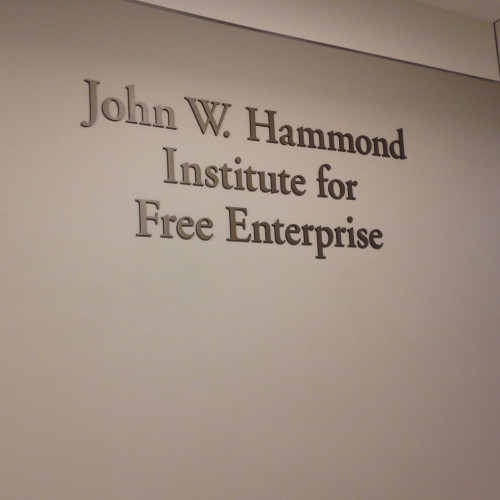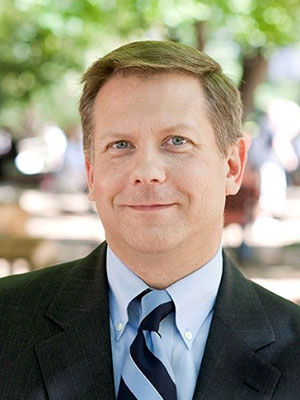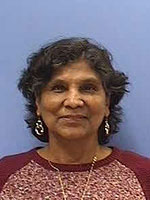Economics gives you a powerful way to understand and influence the world around you. The economics programs at Lindenwood University train students to be effective problem solvers. Students develop a strong understanding of economic theory, decision-making, economic policy, and other economic issues. Students learn to apply valuable quantitative and analytical skills, including econometrics and business analytics, to solve real-world problems. In addition to specialized economics training, students receive relevant knowledge and skills from a well-rounded core of business courses that are widely applicable in many careers.
The Economics Department pursues excellence in teaching, scholarship, and service to enrich your study of economics. Students find an economics faculty that is supportive, well trained, and experienced. Small classes allow students to closely engage with faculty and fellow students. Students gain quantitative and analytical skills highly desired in the workplace. As part of the Economics Department, the Hammond Institute for Free Enterprise at Lindenwood University ranks among the top nine percent of economics institutions based on the quality and impact of its research. Lindenwood’s Economic Education Center provides unique opportunities to increase economic and financial literacy across campus, throughout the community, and around the nation. Students are encouraged to enhance their learning by earning course credit while gaining practical experience through internships and other experiences. Lindenwood faculty, advisors, and career center staff provide opportunities for students to interact with potential employers. Active involvement in student organizations, such as the international economics honor society Omicron Delta Epsilon and the Hammond Institute Student Fellows, expands these valuable networking opportunities. Students can also personally explore the world while completing coursework through shot-term study-abroad opportunities.
Economics equips students with knowledge and skills valued by employers in many professions. Economics empowers students to make sound decisions, analyze behavior, interpret data, forecast changes, and solve problems. Students trained in Business Economics are in high demand across a wide range of corporate, non-profit and public sectors, including finance, healthcare, technology, utilities, and government. Economics training also provides excellent preparation for graduate studies in a wide range of fields, including economics, business, law, and social sciences. Graduates of Lindenwood’s economics programs find employment at a wide range of places like Express Scripts, Anheuser-Busch, PwC Middle East, Kennedy Capital Management, and Infinite Electronics.
Hear About Our Economics Program!
Degrees Offered
Undergraduate Programs
Economics Faculty
Dr. Grant Black
Grant Black is an Associate Professor of Economics and is the Associate Director of the Economic Education Center. Prior to joining Lindenwood in 2018, Black directed the Center for Entrepreneurship and Economic Education and was a Teaching Professor of Economics at the University of Missouri-St. Louis (UMSL). Prior to joining UMSL, he was an Associate Professor of Economics at Indiana University South Bend. In 2002, he was Visiting Professor at the University of Pretoria in South Africa. Dr. Black has taught both undergraduate and graduate courses, including introductory macroeconomics; introductory microeconomics; labor economics; energy; economics and the environment; and a survey of economics.
Dr. Black received his undergraduate and master degrees from the University of Missouri-St. Louis (1992, 1994), and his Ph.D. from Georgia State University (2001).
Dr. Annette Najjar
Annette Najjar is a Professor of Economics. She holds a Ph.D. in Business Administration from Kennedy-Western University, a M.B.A. from Millsaps College, and a B.S. in Economics from the University of the West Indies.
Dr. Najjar has been teaching undergraduate level economics courses at Lindenwood University for the past 20 years. Before beginning her career in higher education, Dr. Najjar was a Research Officer III at the Central Bank of Trinidad & Tobago, which followed her work as a Statistical Officer II at the Central Statistical Office of Trinidad & Tobago. Dr. Najjar is excited to use her previous work experience, her constant professional development in regional and national economic issues, and her years in the classroom to design a relevant and engaging curriculum for the courses she teaches.















